A Duke Kunshan post-production team has won an award for its work on the winner of the Shanghai 48-Hour Film Festival.
Led by Kaley Clements, assistant professor of media and arts, they worked frantically on the film “Requiem for a Martyr”, finishing post-production with just a minute to spare, and almost failed to send the finished product before the deadline after a tired team member tripped on a power cable pulling it from the wall. Their hard work paid off though, with the seven-minute movie bagging several awards including best film, editing, cinematography, sound design, poster, producer and lighting. The film will go on to represent Shanghai against other city winners around the world at Filmapalooza 2023, in Los Angeles in March.
“We had a great team and it was an excellent learning experience for them,” said Clements. “Winning an award is testament to their talent and how much the film program has developed at Duke Kunshan.”
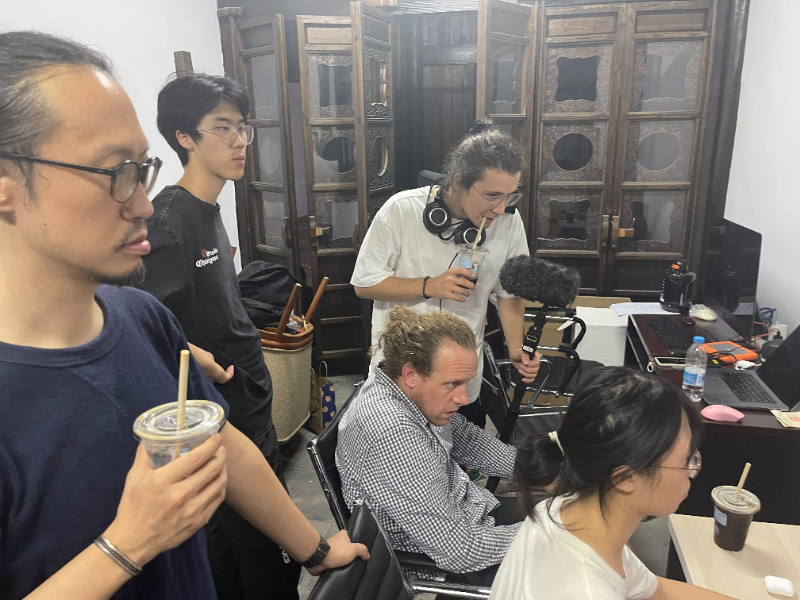
Clements’ team included staff member Junqiu (Dylan) Yu, and students Kaiqi Wu and Yaoyun Qi. They were joined by professionals who worked on sound and color grading for the film, as well as the writers/directors Jud Willmont and Nick Scott.
Competition entrants were given a genre, location, line of script and prop they must include in their film at 7pm on a Friday in August last year, leaving the teams with a frenetic 48 hours to write a script, find locations and complete all post-production work.
Willmont and Scott were caught off guard immediately, according to Clements, after being given a location in Shanghai, having scouted places in Kunshan close to the DKU campus. Nevertheless, they dived into the project working on a script and by 3am Saturday were on set ready to shoot the first scenes of the film, a period Kungfu drama set in ancient China revolving around the theft of treasure.
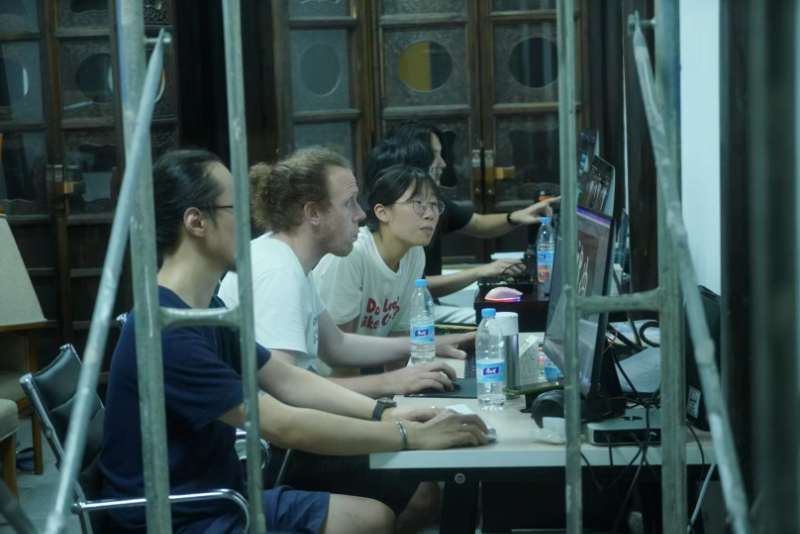
Clements and the DKU post-production team joined them on set at around 10am to collect some of the early footage and begin putting together rough edits, staying until filming was finished. The shoot was scheduled to wrap up at 10pm Saturday but overran to 2am on Sunday, meaning the post-production team, after packing up and traveling back to their base in Kunshan, which was in the house of DKU professor Andrew Field, did not begin to work on the film until around 4am.
“We were well behind schedule, but that’s normal on film sets. You have to stay calm and do what you have to do,” said Clements.
From there the team worked against the clock, fueled by coffee, adrenalin and where they could get it the occasional nap, in order to meet the festival deadline of 7.30pm Sunday.
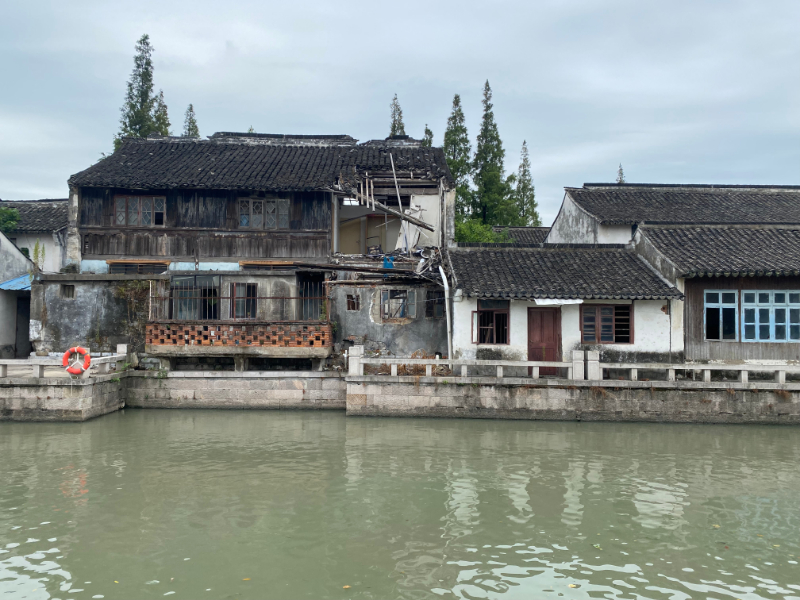
“It was a frenetic and stressful 48 hours. We didn’t have much sleep. But it was also a lot of fun. It’s good for the students to experience that kind of on-set atmosphere. It’s a great learning experience,” said Clements.
The first cut of the film took six hours to complete and was ready by 10am Sunday, but it was 15 minutes long, eight above the maximum allowed by the festival. It required some tough decisions and discussions with the directors over what to cut.
The greatest part of editing is to emotionally connect with the audience and make sure the story makes sense, followed by rhythm, said Clements. Qi, who was lead editor, made some “very impressive editing decisions,” in achieving those aims and getting the film down to the required length under severe time pressure, he added.
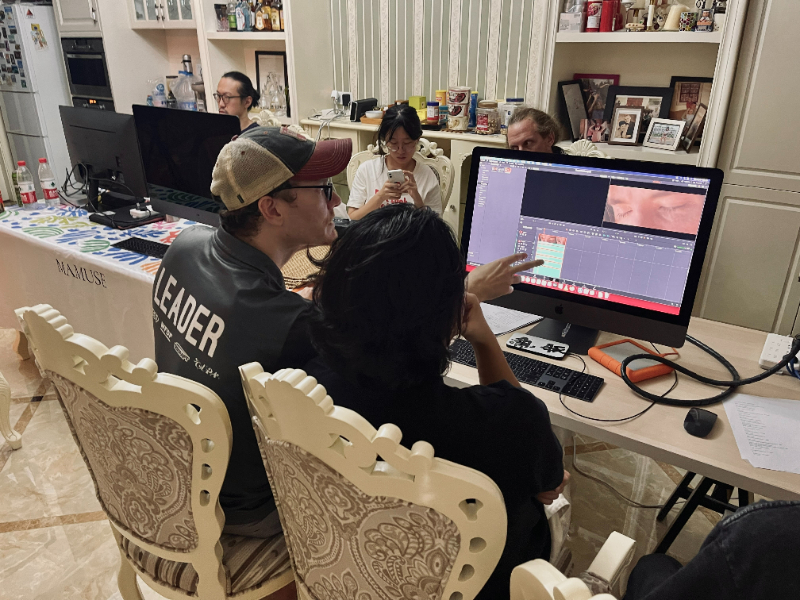
Finally, the music editor and color grader worked on the project and the film was set to upload to the festival files at 7.29pm, one minute before the deadline. With multiple festival entrants across China uploading at the same time it would take several hours for the film to fully upload. In the meantime the team began to pack, but as they did an exhausted Qi tripped on a cable halting the film upload.
“The directors looked at her like ‘what did you do this for’?” said Clements. “We were all really nervous that it meant we were disqualified.”
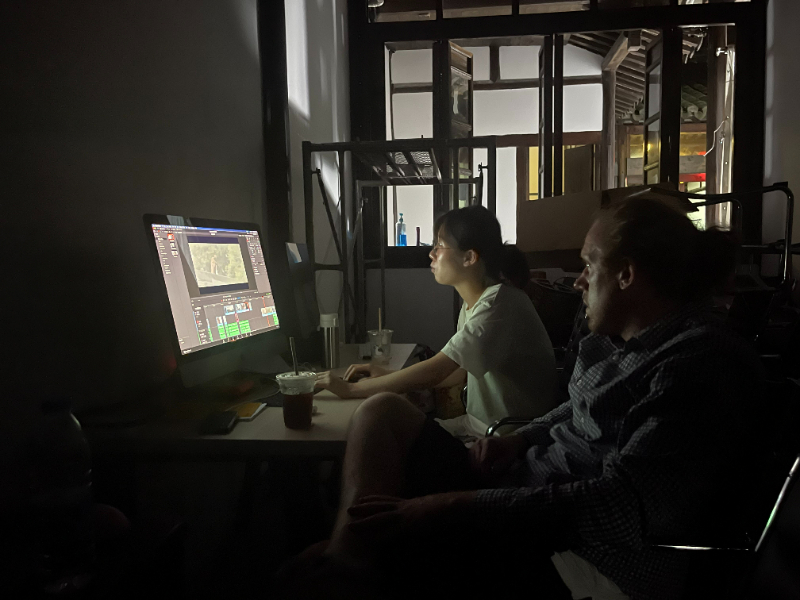
However, after a call explaining the situation was made to the festival organizers, the team breathed a collective sigh of relief, as they were allowed to begin the upload again.
This was the third time Clements has led a DKU team working on post-production for a Shanghai 48-Hour Film Festival project. The previous two years their films received the audience award following a public screening.
Clements had high praise for this year’s DKU team, who he said did a great job across the whole project and kept their heads despite the lack of rest and tense situation.
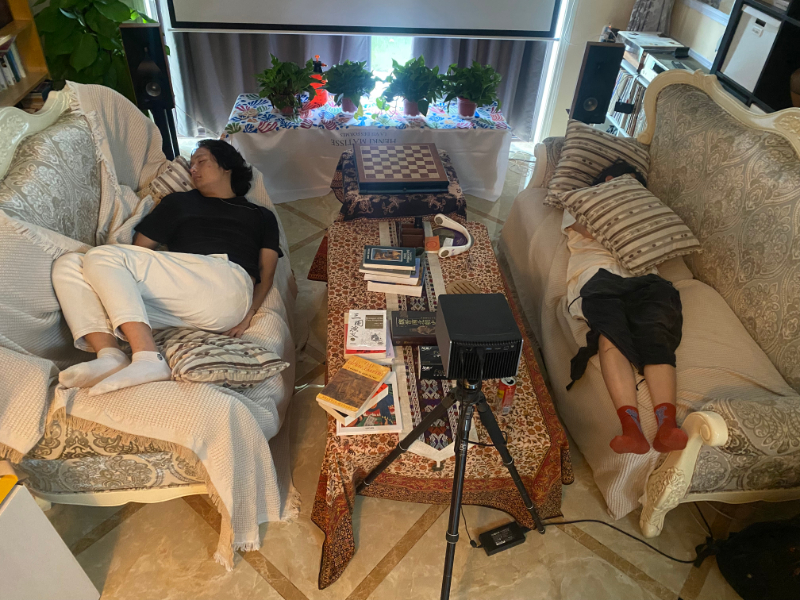
The film program at DKU is “just going to get stronger,” he added. “Dylan is a big part of the puzzle that’s helping us come together right now. He knows how to make films and how all the equipment works. We are really lucky to have him.
“With filmmaker Travis Wilkerson joining the faculty and phase two of the campus soon to be completed, we will be able to grow more. We’ve done a lot of the foundation work and now we are ready to take off,” he added.

